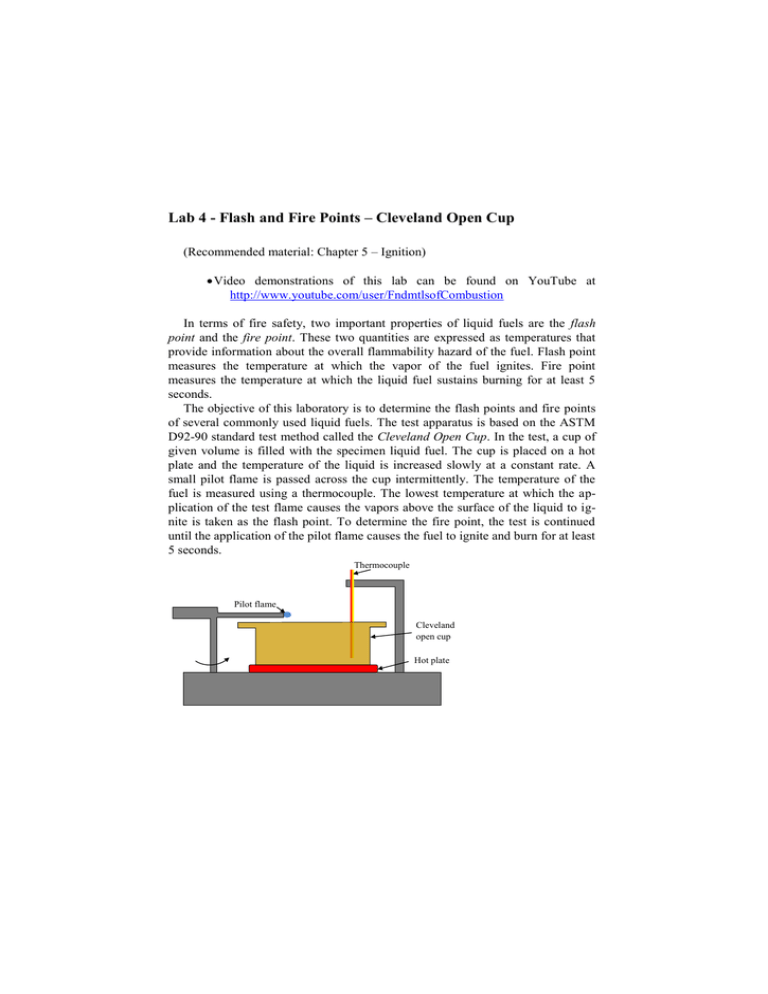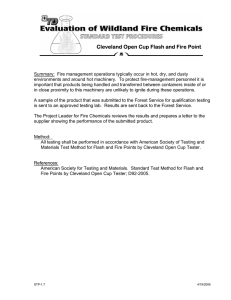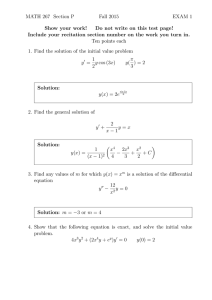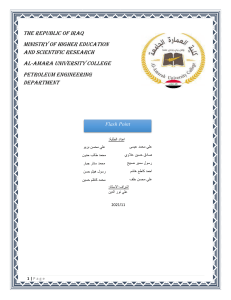Lab 4 - Flash and Fire Points – Cleveland Open...
advertisement

Lab 4 - Flash and Fire Points – Cleveland Open Cup (Recommended material: Chapter 5 – Ignition) Video demonstrations of this lab can be found on YouTube at http://www.youtube.com/user/FndmtlsofCombustion In terms of fire safety, two important properties of liquid fuels are the flash point and the fire point. These two quantities are expressed as temperatures that provide information about the overall flammability hazard of the fuel. Flash point measures the temperature at which the vapor of the fuel ignites. Fire point measures the temperature at which the liquid fuel sustains burning for at least 5 seconds. The objective of this laboratory is to determine the flash points and fire points of several commonly used liquid fuels. The test apparatus is based on the ASTM D92-90 standard test method called the Cleveland Open Cup. In the test, a cup of given volume is filled with the specimen liquid fuel. The cup is placed on a hot plate and the temperature of the liquid is increased slowly at a constant rate. A small pilot flame is passed across the cup intermittently. The temperature of the fuel is measured using a thermocouple. The lowest temperature at which the application of the test flame causes the vapors above the surface of the liquid to ignite is taken as the flash point. To determine the fire point, the test is continued until the application of the pilot flame causes the fuel to ignite and burn for at least 5 seconds. Thermocouple Pilot flame Cleveland open cup Hot plate 2 Exercises 1. Compare the measured flash points and fire points to those found in Appendix 8. Discuss any differences.



